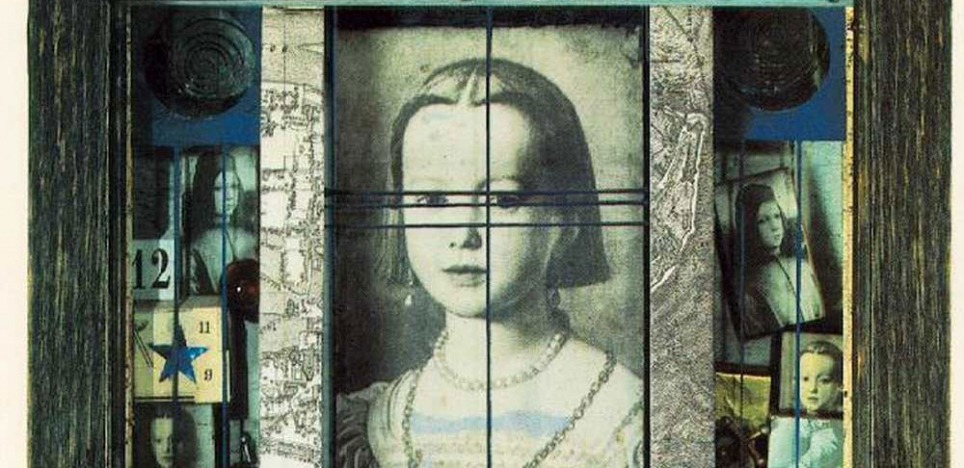Joseph Cornell (1903-1972) is appreciated for his creation of boxes that affirm the beauty and mystery of everyday objects and provide visual poetry for the flight of our imaginations.
Cornell lacked any formal art training, but critics have seen in his creations signs of Surrealism with its emphasis on dreams and irrationality. This artistic style was only one of many influences which jostled around in the mind and soul of this recluse who constructed his boxes for forty years in the basement of his mother's house in Queens where he lived with her and his disabled brother.
Cornell's enchanted boxes are incarnations of his yearnings and his delight in play. He constantly alluded to the importance of these character qualities in his diaries and letters. In a catalogue for an exhibition in 1948, he wrote:
"Shadow boxes become poetic theatres or settings wherein are metamorphosed the elements of a childhood pastime."
In Untitled (Medici Princess), a box completed in 1948, the central image is that of a reproduction of a painting by Bronzino of a princess who died at the age of six.
This glass enclosed box contains bits and pieces of different things. Art scholars have had a field day interpreting the medallion around the little girl's neck; the significance of childhood objects including marbles, jacks, and a bright red ball; a batch of letters tied together; a fan; pictures of the princess; and the juxtaposition of the artist's own favorite haunt of amusement park shooting galleries with a floor plan of the Vatican on the bottom of the box.
Untitled (Medici Princess) manages to meld together high and low culture; glimpses of the little girl's life and one of the artist's favorite places; and a look at death and the small enchantments of life. This astonishing box registers on our senses as poetic theatre. Joseph Cornell speaks eloquently about the mysteries of human beings and the wonder that springs to life when we surrender ourselves to great art.
